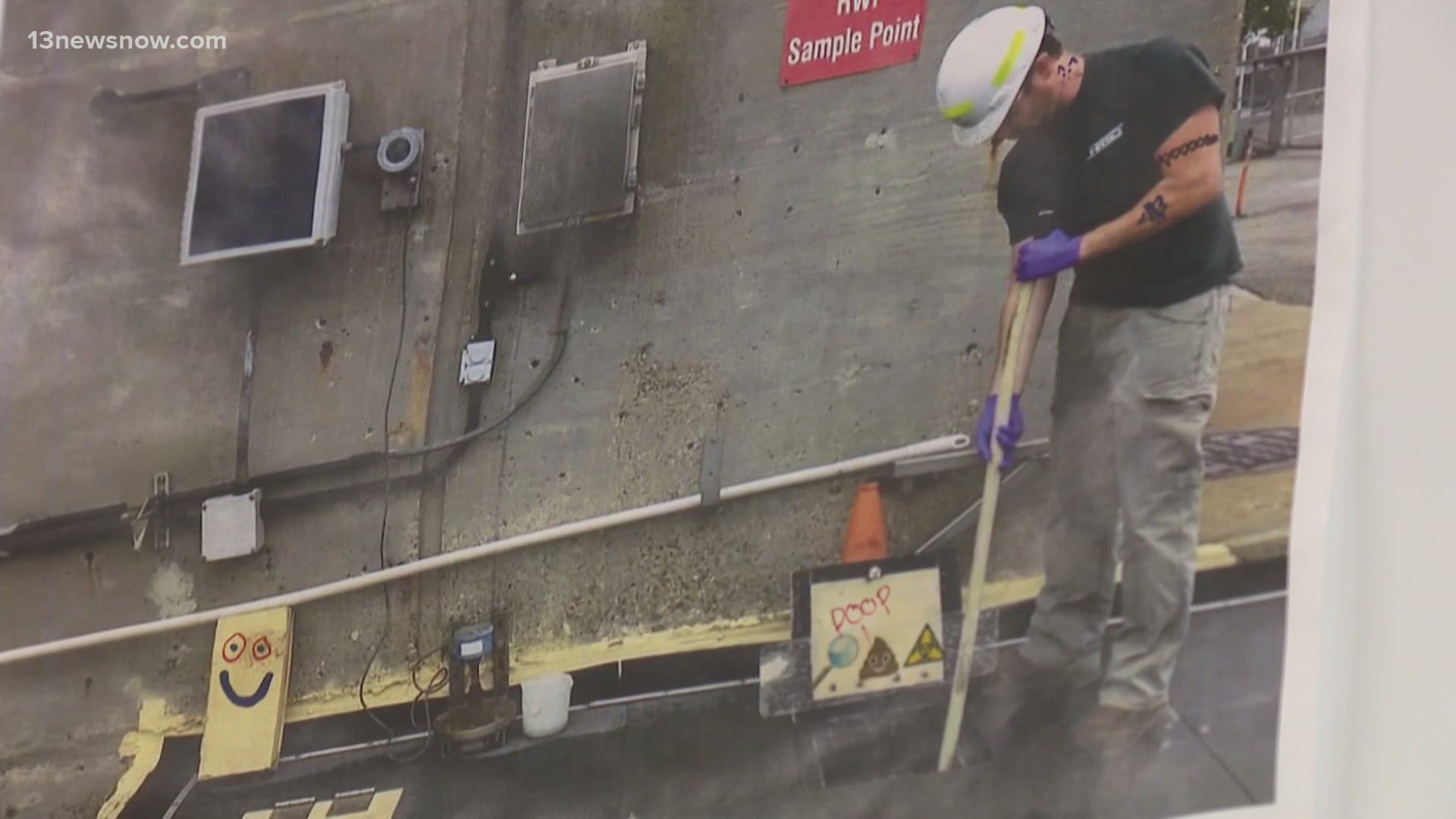VIRGINIA BEACH, Va. — Environmental scientists have been tracking COVID-19 through our local wastewater treatment centers and finding traces of the virus in stool samples.
An environmental scientist with the Hampton Roads Sanitation District, Raul Gonzalez, says his department has been running tests for several months.
He says first, they collect the samples either directly by scooping up unfiltered wastewater or through the treatment centers. Once it is collected, they concentrate the water down and take it to the laboratories where they extract genetic material from the samples.
The traces, which are not an active or living part of the virus and can stem from anyone who had symptoms, was asymptomatic, or even pre-symptomatic.
His team began the research in winter of 2020 when the pandemic was reaching the United States. Ever since then, they have been reporting their data to the CDC and the Virginia Department of Health.
"The thought from the beginning was we could use this as an early warning system, so we could get results faster in wastewater than through clinical testing," explained Gonzalez.
Because the wastewater testing can detect the presence of the virus from people who are asymptomatic or pre-symptomatic, it gives scientists the opportunity to detect an outbreak or hotspot earlier on than other traditional testing methods.
Gonzalez says with this data, it's possible the number of COVID-19 cases in Hampton Roads is much higher than what we are currently recording. He says this wave we are in now is worse than what Hampton Roads experienced back in July.
"Now we're in the middle of our third wave, so it's kind of everywhere right now," Gonzalez said when asked where his data is seeing the highest number of cases.
Not only does this data track the number of cases ahead of time, but it also helps warn hospital systems to expect an influx of patients.
Gonzalez says after watching the data grow over the last several months, he understands the fight against this virus is still far from over.
"From our wastewater data, it definitely says we can't let up right now," Gonzalez said. "We got to keep on doing these practices because it's still there. We're still in a big wave right now."
Gonzalez says his team tests once a week and will be testing it throughout the vaccine distribution process.

